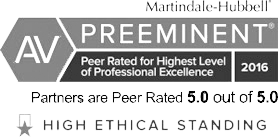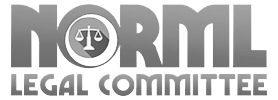The term "criminal procedure" refers to the set of rules that govern the series of proceedings through which the local, state, and federal government enforces substantive criminal law. The rules of criminal procedures vary widely in different municipalities and at the state and federal level. Criminal procedure rules impact each stage of a criminal case.
If you have questions about how Utah's criminal procedures could impact your misdemeanor or felony case, then contact an experienced criminal defense attorney in Salt Lake City at Brown, Bradshaw & Moffat, LLP.
Our attorneys represent clients throughout Salt Lake City and the entire state of Utah. Let us put our experience to work for you. Call (801) 532-5297 today.
Simply put, the purpose of the preliminary hearing "is limited to determining whether probable cause exists unless otherwise provided by statute."
Additionally, Utah Code Ann. § 78A–2–220(1)(f) makes it clear that a magistrate has the authority to conduct a preliminary examination “to determine probable cause.”
This means that during a hearing, the evidence does not need to support guilt beyond a reasonable doubt.
In some cases, a defendant will knowingly, intelligently, and voluntarily waive his right to a preliminary hearing. Before you decide whether you should waive your right to a preliminary hearing, you should have an experienced defense lawyer go over your case. The legal team at Brown, Bradshaw & Moffat can help you determine what will be best for your defense.
In order for a plea to be considered knowing and voluntary, it must be made with an awareness of the relevant circumstances and likely consequences. In order for the courts to make sure that the defendant has sufficient awareness of the consequences of his or her decision to enter a plea, the Utah Supreme Court created Rule 11 of the Utah Rules of Criminal Procedure.
Rule 11 was designed to highlight the importance of constitutional rights by requiring the judge in district court to discuss these rights with the defendant before accepting his plea. In other words, Rule 11 was created to help the defendant understand the basic consequences of the decision to plead guilty.
The rule protects a person's rights to have notice of the charge pending against them, the elements of the crime that have to be proven at trial, how the defendant's conduct amounts to a crime, and the consequences of the plea.
Rule 11 provides that the court in Utah may not accept a guilty plea until the court has found that:
If these requirements are not met, then under Section 77–13–6(2)(a) of the Utah Code, a plea may be withdrawn only upon leave of the court and a showing that it was not knowingly and voluntarily made.
The term “exculpatory” refers to evidence that can clear from alleged guilt. In Utah, Rule 3.8 of the Utah Rules of Professional Conduct states that a prosecutor in a criminal case must "make timely disclosure to the defense of all evidence or information known to the prosecutor that tends to negate the guilt of the accused or mitigates the offense."
This disclosure should obviously occur prior to the time any plea is entered or the case is set for trial. The timeliness of a prosecutor's disclosure of exculpatory evidence is a matter governed in Utah by our rules of criminal procedure.
By rule, “The prosecutor’s disclosures must be made as soon as practicable following the filing of charges.” Utah R. Crim. P. 16(a)(2). Our rule also implicitly recognizes that some exculpatory material may not be known before the time for a plea; for such material, the prosecutor has “a continuing duty as the material or information becomes known to the prosecutor.”
The requirement of timely disclosure is important and aimed at allowing the “defendant to adequately prepare a defense.”And our ethics rule has the same evident focus. Rule 3.8(d) of the Utah Rules of Professional Conduct requires more than just disclosure because it requires “timely disclosure.”
Utah Courts on the Rules of Criminal Procedure - Search the rules of criminal procedure in Utah including the historical regulations prior to recent amendments to understand the changes made over time. The website also includes a list of criminal forms including forms for criminal cases, expungement, traffic offenses.
Your criminal defense attorney must be well versed in Utah's Rules of Evidence and Criminal Procedure. The rules of criminal procedure govern all aspects of the criminal case from the first appearance, the preliminary hearing, the exchange of discovery, pretrial motions to dismiss or suppress, the trial, the direct appeal, and any post-conviction motions.
Call an attorney at Brown, Bradshaw & Moffat, LLP, in Salt Lake City, UT, to find out more about ways to fight your charges.
Call (801) 532-5297 today.
Use the form above to request your free, confidential case evaluation. Our office will contact you as soon as possible to arrange for you to discuss the facts of your case with an experienced criminal defense attorney in Salt Lake City, Utah.
Note: By submitting the above form, you are requesting a free and confidential consultation with one of our attorneys to discuss the specific facts of your case. We will evaluate your unique situation and provide you with valuable information about how an attorney may be able to help you. Please do not provide any confidential or time-sensitive information using this online contact form. If your situation is urgent, please call us at (801) 532-5297. We look forward to hearing from you.
The use of this form for communication with our personnel does not establish an attorney-client relationship.
Mark has represented our son for over ten years. We have a difficult situation but we have never doubted that Mark, and now, Mike, care about him and our family. Their caring advice has been a lifeline for us.
Mike Holje was there for me and helped me get the charges dismissed. He was fantastic. I am so thankful for this firm.
Jim Bradshaw worked with me on a case and was helpful, realistic and very professional. I found him to be one of the best attorneys (and person) I have encountered.
I used Brown, Bradshaw & Moffat and would recommend them to anyone. Everyone in his or her office is kind, efficient and very responsive. You are treated respectfully and on an equal playing field.



